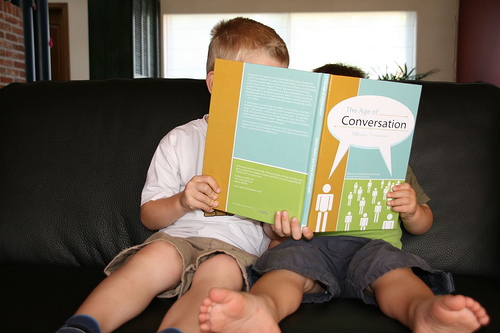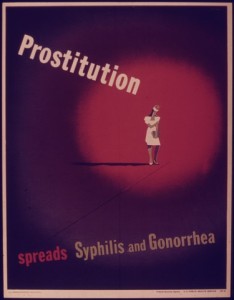(También en español) In Part 1, I highlighted the first three of six sex narratives developed by Marty Klein, Ph.D., in his book, America’s War on Sex, and outlined in last year’s State of Sexual Freedom Report, produced by the Woodhull Sexual Freedom Alliance (Woodhull). Dr. Klein posits, “Sexual freedom expands or contracts within political, social, economic, cultural, and psychological contexts–some of them contradictory, some of them mutually reinforcing.”
A quick recap: a “narrative” is a coherent storyline that contains a set of assumptions that enables people to make meaning out of raw fact. So the way we talk and tell stories about sexual facts influences our perceptions about sex and the meaning we give to facts. The first three narratives discussed earlier are that “sex is dangerous,” “government should protect us from sexual danger,” and “certain people aren’t sexually normal, and certain kinds of sex aren’t normal; society needs to be protected from both.”
Now, for the fourth narrative, “morality can be measured by sexual criteria–the less sex, the less evident the sex, and the less adventurous the sex, the more ‘moral’ the person.” This type of judgment is superficial because it bases a person’s morality on perceived sexual practices, on their decision-making, willingness to take responsibility for their actions, honesty in dealing with others, or willingness to sacrifice for the common good, which are key concerns when dealing with morality. This narrative also fuels people’s anathema to sex workers, which lead to the development of “Prostitution-Free Zones” (PFZs) laws in D.C., which legalized sex discrimination and allowed cops to profile people as sex workers based on appearance and perceived sexuality and sexual activity in public areas. Not only were these zones a threat to civil rights, but also human rights, something Woodhull actively advocates and defends. (Through the work of Woodhull, VenusPlusX, and a dozen other advocacy organizations, city officials now conclude that PFZs are indeed unconstitutional, and trashed a bill that would have made them permanent and police are no longer enforcing them.)
The fifth narrative is “sexual expression is appropriate only for some people, only under certain conditions. Anything else is unauthorized and bad for society.” This is evident in the fact that Americans are still uncomfortable with the idea of teens, the elderly, the non-heterosexual, the physically or mentally handicapped, the incarcerated, and the unmarried being sexual. Moreover, some forms of sexual expression, such as BDSM, are often considered unauthorized for anyone, regardless of consent.
Last, “when it comes to civil rights, sexuality is different.” However, this notion is false because our sexual rights are part of our civil rights (as mentioned previously) and a part of our basic human rights.
All in all, these six narratives play a key component to our perceptions of teen sexuality and sex education. With regards to teens, American society generates narratives about teen sexuality being “dangerous,” in need of governmental control through abstinence-only education, and only normal if it is heteronormative — but teen sexuality still immoral by nature and in premarital sexual expression. These are extremely harmful narratives for American youth, and the effects play out in the high rates of unwanted teen pregnancy, STD/STI transmission, and HIV.
Therefore, everyone must recognize these narratives for what they are: stories, and not scientific fact. Once we understand that, we can start disavowing these narratives of sexuality that negatively influence our perceptions of sex, teen sexuality, and sexual rights and freedoms.

Marty Klein’s six narratives of sexuality have profound impact on American youth, impacting our attitudes about teen sexuality and sex education.
If you want to find out more about the Woodhull Sexual Freedom Alliance and their views on sexual health education and other key issues of sexual freedom, such as sex work and reproductive justice, you can attend Woodhull’s Sexual Freedom Summit in September. Also, you can attend Woodhull’s Sexual Freedom Summit (September 21-23), where Alison Gardner and Dan Massey, VenusPlusX’s founders who work closely throughout the year with Woodhull as members of its Advisory Council, will be presenting their workshop session, “Sacred Sexuality and Erotic Communion, the Human Experience.”
Creative Commons Image Provided by: Wikicommons
Creative Commons Image Provided by: Kris Hoet














